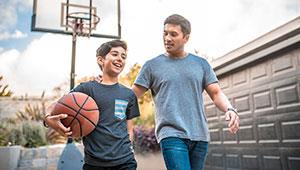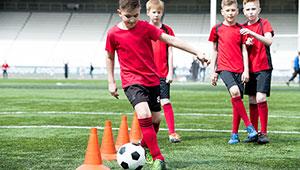Tip No. 8: Treat Your Child Equal to Other Players
Never be harder on your own child than you are on the other players. Some coaches try too hard to prove their objectivity. They push their own child more than the other members of the team. This is bad for your child's self-esteem and destructive to the parent-child relationship.Tip No. 9: Be Aware of Limitations
Know when to say when. When your temperament or knowledge limits are met, it is time to move your child to a more appropriate coach. Do it graciously. Be supportive, give the new coach a fair opportunity.Tip No. 10: Be Positive, Criticize Constructively
Instructional comments will be more effective than emotional attacks. Studies have conclusively demonstrated that instructional feedback builds self-esteem, produces superior performance and more motivated athletes.Tip No. 11: Learn How to Cool Your Temper When Angry
If your anger is related to your bad mood, dumping your anger on your child will create problems for two people instead of one. If the error is significant, it will be there tomorrow. Correct the error when you have cooled down. Remember, if he or she could have done better, they would have done better!Tip No. 12: Use Assistants
Your child may be more open to feedback from assistants, especially once puberty hits. At puberty, and sometimes before, children have a strong drive to assert their independence. Sometimes advice is easier to take when it comes from outside the family.Tip No. 13: Use Team Meetings
Ask players for their input, and perhaps even get a suggestion box for players and parents to provide suggestions about how best to achieve team goals. A suggestion box or similar system may help defuse perceptions of favoritism and build consensus.Tip No. 14: Children Need to Experience a Sense of Mastery
Success is important. Win-loss record is important. Why? Because children talk to other children. By third grade they will be asked how their team is doing. By middle school your children will be teased for poor performance.Tip No. 15: Keep Sports in Perspective
Balance between sport and life will reduce performance anxiety for the athlete. Balance includes doing chores and school work and maybe even scouts or church as well as sports.
- 2
- of
- 2










Discuss This Article